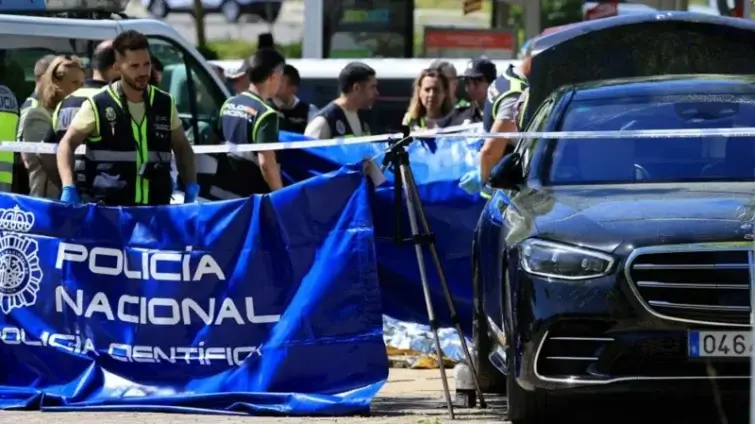The ornate Dolmabahçe Palace in Istanbul, a relic of the Ottoman Empire’s waning days, is playing host to an unusual kind of diplomacy. After months of escalating tensions and battlefield maneuvers, officials from Russia and Ukraine have convened for their first direct discussions since 2022. The stakes are immense, yet the highest-ranking players—Presidents Zelensky and Putin—are conspicuously absent, casting a shadow over the proceedings. Even the once-rumored intervention of figures like Donald Trump seems a distant echo, leaving many to wonder if this engagement is a genuine pursuit of peace or merely a theatrical exercise. These Russia-Ukraine talks represent a cautious step, but will they lead to concrete solutions?
While global attention focuses on these fragile dialogues, the question remains: Can meaningful progress be achieved without the direct involvement of those who ultimately hold the reins of power?
Why Istanbul? Details of the First Russia-Ukraine Direct Talks in Years
The choice of Istanbul as the venue for these pivotal Russia-Ukraine talks underscores Turkey’s unique position as a neutral mediator, a nation with ties to both Moscow and Kyiv. This marks the first face-to-face engagement between the two countries since 2022, a shift that some analysts interpret as a potential exhaustion of military options, while others view it as a calculated move by both sides to gauge the other’s resolve. The implications of holding these discussions now are complex, intertwined with the ebb and flow of the conflict on the ground and the evolving geopolitical landscape.
The timing itself is significant. Recent months have witnessed a grinding stalemate along the front lines, with neither side achieving decisive breakthroughs. This protracted war of attrition has placed immense strain on both economies and societies, perhaps creating a window of opportunity for diplomatic engagement, however tentative.
Who ISN’T There? The Absence of Key Leaders
The absence of Presidents Zelensky and Putin from the Istanbul talks immediately raises questions about the seriousness of the negotiations. Zelensky himself has been critical, suggesting that Putin isn’t sending ‘real decision-makers’. This absence, combined with the lack of participation from figures like Donald Trump, who previously hinted at involvement, adds a layer of uncertainty to the proceedings.
Several explanations for their absence have been floated. Some suggest that Putin is unwilling to directly engage until certain preconditions are met, while others argue that Zelensky prefers to maintain a distance to avoid being seen as compromising under pressure. Regardless of the reasons, the lack of top-level representation inevitably limits the scope and potential impact of these talks.
International Reactions and Expectations
The international community’s response to the Russia-Ukraine talks in Istanbul has been a mix of cautious optimism and deep skepticism. Secretary of State Marco Rubio, for example, has already downplayed expectations, reflecting a prevailing sense of uncertainty within the US government. As Rubio stated, “I’m not holding my breath that these talks will lead to a breakthrough. Putin has shown time and again that he’s not interested in genuine negotiations.”
In contrast, German Chancellor Friedrich Merz has pledged new sanctions on Moscow, signaling a continued commitment to applying pressure on Russia. Other European leaders are reportedly pushing for a 30-day ceasefire, highlighting the growing urgency for de-escalation and a potential pathway to more substantive discussions.
Potential Outcomes and Next Steps
Predicting the outcome of the Russia-Ukraine talks is a precarious exercise. Several scenarios are possible, ranging from a significant breakthrough that leads to a lasting ceasefire to a complete stalemate that reinforces the current status quo. The impact of these talks on the ground in Ukraine and the broader geopolitical landscape will depend largely on the willingness of both sides to compromise and the extent to which international actors can effectively facilitate the negotiation process.
Regardless of the immediate outcome, possible next steps in the negotiation process could involve establishing working groups to address specific issues, such as territorial disputes, security guarantees, and humanitarian concerns. The involvement of neutral third parties, such as the United Nations or the Organization for Security and Co-operation in Europe (OSCE), could also play a crucial role in fostering trust and facilitating communication between the parties.
The Russia-Ukraine talks in Istanbul, despite the notable absence of key leaders, represent a potentially crucial juncture in the ongoing conflict. While expectations remain tempered, the direct engagement offers a flicker of hope for de-escalation and a possible path towards resolution. The response of the international community, coupled with the subsequent actions of both Russia and Ukraine, will ultimately determine the future course of this conflict and its implications for global security. Whether this meeting will prove to be a genuine step towards peace or just another chapter in a prolonged and devastating war remains to be seen.
Image Source: MYJOYONLINE





















